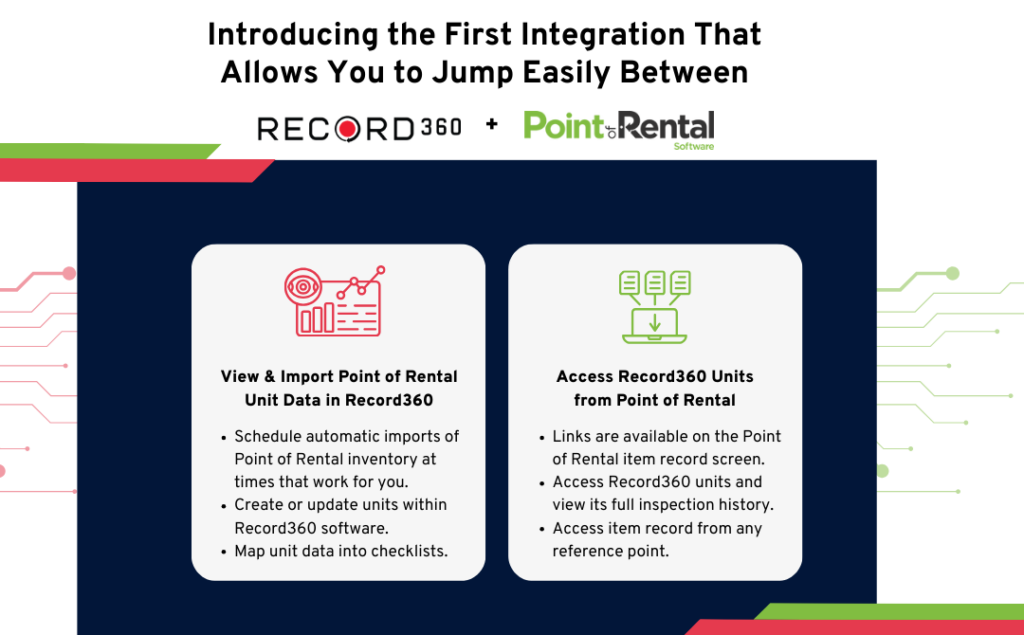Leading rental law expert, James Waite, joined Record360’s CEO, Jesse Buckingham, for a conversation on rental contracts, damage waivers, and using tech to minimize the pain and cost of litigation. Read on below for a summary of How to minimize exposure and bulletproof operations. This insightful conversation draws on James’ 25+ years of experience in rental law.
Highlights
- Why are bulletproof rental contracts so important? (5m 47s)
- What are some of the most common gaps in rental contracts? (8m 28s)
- What are best practices for collecting signatures on contracts? (14m 33s)
- How can I use technology to reduce time and cost of litigation? (24m 30s)
- How can I use Record360 to reduce my legal exposure? (26m 30s)
- What are best practices for damage waivers? (37m 44s)
The conversation began with a question for James on the importance of having a bulletproof rental contract. From James’ perspective, rental operators are exposed to a wide range of legal risks (e.g., misuse, damage, valid signatures). These risks have to be “dealt with in very specific ways in order to provide the protections necessary…without those protections it’s anyone’s guess where things will land [in a lawsuit],” said James.
The law, “by default, will side with the lessee,” based on the Uniform Commercial Codes. This is why it’s critical that rental operators layer on the necessary legal protections in their rental contracts. Otherwise, disputes will be costly and typically end in favor of the lessee.
When James works with his clients, he sees a number of gaps in their current rental contracts that leave them exposed. James said that many people get their rental contract from “a guy down the street or a forms website, and they don’t really know where the contract originated.” He goes on to say that “almost none of them have all of the protections that should be afforded to an equipment lessor.” That’s why having a rental contract written for you by someone like James is an essential part of any rental business.
Whether it’s a rental contract from a forms website or from the guy down the street…almost none of them have the protections an equipment lessor needs
As the conversation turned to best practices for collecting signatures, James pointed out that, “like it or not, technology is taking over.” “One of the ways technology is helping,” he said, “is that equipment lessors can get documents to someone they know actually has authority to sign.” Previously, rental operators might’ve settled for having just anyone sign for the equipment. Now, operators can, and should, be more diligent with who they have sign for the equipment. This is a critical first step in minimizing exposure.
For James, it’s all about minimizing exposure for his clients. Getting a proper signature from an authorized signer is just the first part of the equation. He also encourages renters to use geolocation and date and time stamped photos/video to eliminate other questions. Being able to verify time, location, and condition of equipment “can save people thousands of dollars in legal fees” if a lawsuit occurs. Litigation is painful enough as is, that’s why James encourages rental operators to leverage technology (e.g., Record360’s inspection software) to “lower their legal bill.”
This is the core of James’ playbook for minimizing exposure and bulletproofing operations. It starts with him drafting a best-in-class rental agreement. Next, it’s on the rental operator to collect a signature from an authorized signer. Finally, rental operators need to diligently document their equipment with photos, videos, geolocation, and date/time stamps. This combination reduces exposure, increases odds of winning a lawsuit, and also accelerates the lawsuit. It’s a winning combination for any equipment renter.
Interested in learning more about Record360? Schedule a demonstration today.


